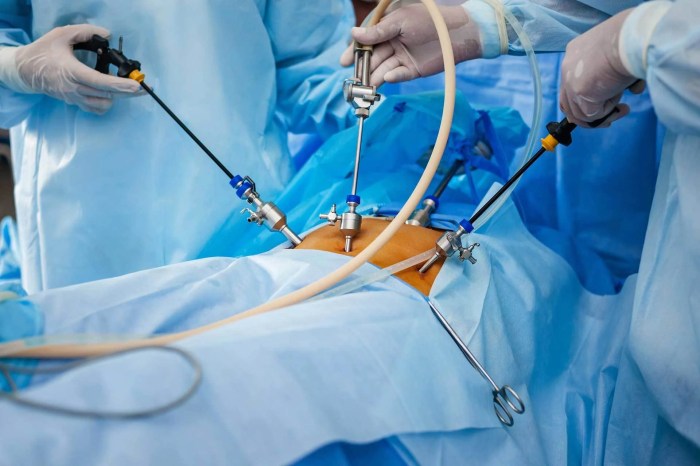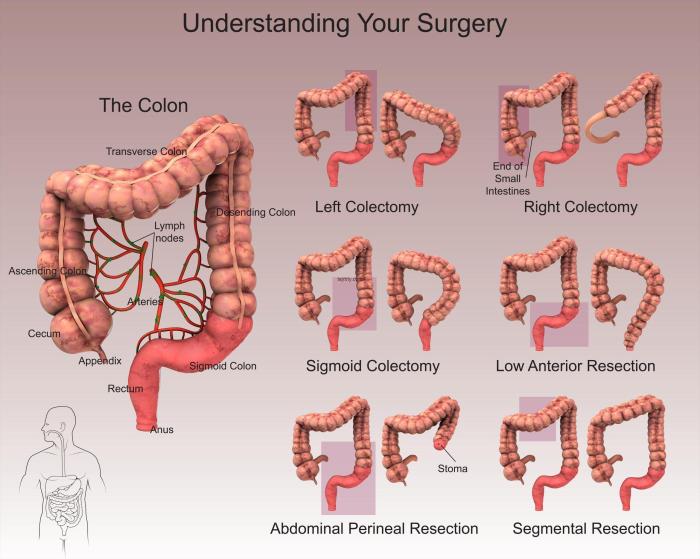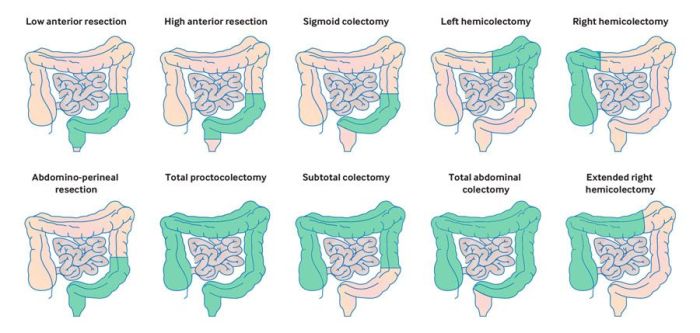The laparoscopic right hemicolectomy CPT code, a crucial element in medical billing, plays a significant role in the healthcare industry. This comprehensive guide delves into the intricacies of this code, exploring its purpose, indications, and the advantages it offers over traditional open surgery.
As we delve deeper into the topic, we will examine the preoperative considerations, surgical technique, and postoperative care associated with laparoscopic right hemicolectomy. Furthermore, we will discuss the expected outcomes and compare them to those of open surgery, providing valuable insights into this innovative surgical approach.
Laparoscopic Right Hemicolectomy CPT Code

The CPT code for laparoscopic right hemicolectomy is 44206.
Laparoscopic right hemicolectomy is a surgical procedure to remove the right half of the colon, including the cecum, ascending colon, and transverse colon.
Indications for Laparoscopic Right Hemicolectomy

Laparoscopic right hemicolectomy is indicated for the treatment of:
- Colorectal cancer
- Diverticular disease
- Crohn’s disease
- Ulcerative colitis
- Benign tumors
Laparoscopic right hemicolectomy offers several advantages over open surgery, including:
- Smaller incisions
- Less pain
- Shorter recovery time
- Reduced risk of complications
Preoperative Considerations for Laparoscopic Right Hemicolectomy: Laparoscopic Right Hemicolectomy Cpt Code
Before undergoing laparoscopic right hemicolectomy, patients should:
- Have a complete physical examination and medical history
- Undergo blood tests and imaging studies
- Quit smoking
- Stop taking certain medications
- Follow a clear liquid diet for 1-2 days before surgery
Surgical Technique for Laparoscopic Right Hemicolectomy

| Step | Description | Image/Illustration |
|---|---|---|
| 1 | The patient is placed in the supine position and the abdomen is prepped and draped. | [Image of patient in supine position with abdomen prepped and draped] |
| 2 | A laparoscope is inserted through a small incision in the abdomen. | [Image of laparoscope being inserted through incision] |
| 3 | Additional incisions are made to allow the surgeon to insert instruments. | [Image of additional incisions being made] |
| 4 | The right colon is identified and mobilized. | [Image of right colon being identified and mobilized] |
| 5 | The blood vessels supplying the right colon are ligated and divided. | [Image of blood vessels being ligated and divided] |
| 6 | The right colon is divided and removed. | [Image of right colon being divided and removed] |
| 7 | The remaining colon is anastomosed to the rectum. | [Image of remaining colon being anastomosed to rectum] |
| 8 | The incisions are closed. | [Image of incisions being closed] |
Postoperative Care for Laparoscopic Right Hemicolectomy

After laparoscopic right hemicolectomy, patients typically stay in the hospital for 2-3 days.
During this time, they will be monitored for complications and given pain medication.
Patients will also be started on a clear liquid diet and gradually progress to a regular diet.
Potential complications of laparoscopic right hemicolectomy include:
- Bleeding
- Infection
- Blood clots
- Bowel obstruction
- Hernia
Most complications can be treated with medication or surgery.
Outcomes of Laparoscopic Right Hemicolectomy
The outcomes of laparoscopic right hemicolectomy are generally good.
Most patients experience a full recovery and are able to return to their normal activities within a few weeks.
The long-term survival rate for patients with colorectal cancer who undergo laparoscopic right hemicolectomy is similar to that of patients who undergo open surgery.
FAQ Resource
What is the CPT code for laparoscopic right hemicolectomy?
44205
What are the indications for laparoscopic right hemicolectomy?
Cancer of the right colon, diverticular disease, Crohn’s disease, and ulcerative colitis
What are the advantages of laparoscopic right hemicolectomy over open surgery?
Less pain, shorter hospital stay, faster recovery, and reduced risk of complications